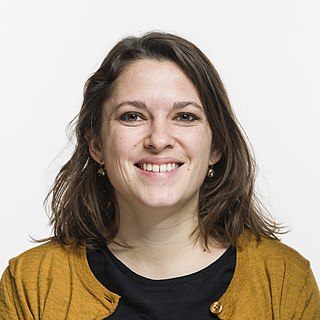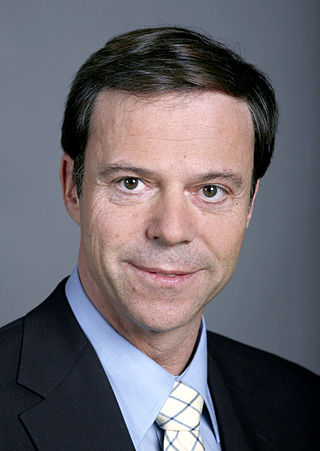
Weltklasse Zürich is an annual, invitation-only, world-class track and field meeting at the Letzigrund in Zürich, Switzerland, generally held at the end of August or beginning of September. Previously one of the IAAF Golden League events, it now serves as a final of the Wanda Diamond League, alongside Memorial Van Damme between 2010 and 2019. In 2021 and 2022, Weltklasse Zürich served as the sole final of the Diamond League, and this is also planned for 2025 and 2027.

Hugo Loetscher was a Swiss writer and essayist.
There was significant emigration of Swiss people to the Russian Empire from the late 17th to the late 19th century. Rauber (1985) estimates that a number of 50,000 to 60,000 Swiss lived in Russia between roughly 1700 and 1917.

Implenia is a Swiss real estate and construction services company with activities in development and civil engineering in Switzerland and Germany. Implenia is also active in tunneling and related infrastructure construction in Austria, France, Sweden, Norway and Italy. The Group was formed at the beginning of 2006 from the merger of Basel-based Batigroup Holding AG with Geneva-based Zschokke Holding SA. The headquarters are located in Glattpark (Opfikon) in the canton of Zurich. Implenia is one of the 500 largest companies in Switzerland.
Joseph Gantner was a Swiss art historian.
Kurt Aepli was a Swiss silversmith, a designer of fine jewelry and implements, as well as a professional educator.

Johann Albert Bachmann was a Swiss lexicographer and dialectologist, professor for Germanic philology at Zürich University from 1896. From 1892 he was an editor of the Schweizerisches Idiotikon dictionary, acting as editor-in-chief from 1896 until his death. Bachmann specialized on Swiss German dialects. He edited the series Beiträge zur Schweizerdeutschen Grammatik and founded, together with Louis Gauchat, the Phonographic Archive of Zurich University in 1913.

Thomas Maissen is a professor of modern history at Heidelberg University and co-director of the Cluster of Excellence "Asia and Europe in a Global Context". From 2013 to 2023 he was director of the German Historical Institute in Paris.
Zaccaria Giacometti was a Swiss scholar of constitutional law and professor at the University of Zurich.

The Library of Contemporary History is one of Europe's largest special libraries for contemporary history, in Stuttgart, Germany.
Rudolf Braun was a Swiss historian.

Mattea Julia Meyer is a Swiss politician who currently serves as member of the National Council (Switzerland) for the Social Democratic Party since 2015. Concurrently she co-chairs the Social Democratic Party of Switzerland together with Cédric Wermuth. Previously, Meyer served on the Cantonal Council of Zürich from 2011 to 2015.

Jacqueline Badran also referred to as Jackie Badran is a Swiss businesswoman and politician. She currently serves as a member of the National Council (Switzerland) for the Social Democratic Party of Switzerland since 2011. She is primarily known for being one of the survivors from Crossair Flight 3597 and her campaigns for additional affordable housing and banning Airbnb. She also holds Australian citizenship.

Gerold Meyer von Knonau was a Swiss geographer and historian whose most enduring contribution to scholarship may well have been his pioneering work between 1837 and 1858 as cantonal archivist for Zürich and the surrounding region.

Urs Dietschi was a Swiss lawyer who entered government service. He then became increasingly caught up in politics and in 1929 became a co-founder of an organisation called the "Jungliberale Bewegung". At the urging of like-minded liberal-radical activists, he secured election to the Solothurn cantonal parliament in 1933, remaining a member till 1937. In 1943 he secured election to the "Nationalrat", representing the Free Democratic Party on behalf of his canton. Meanwhile, he remained a leading figure in cantonal governance, serving as a member of the Solothurn cantonal executive between 1937 and 1966. At both National and cantonal levels he took a consistent interest in social policy and cultural affairs, and was also prominent as an advocate of enhanced social, economic and political rights for women, at a time when Switzerland was, by European standards, widely seen as something of a laggard in such matters.
The Neue Zürcher Nachrichten (NZN) was a Catholic daily newspaper published in the city of Zürich from 1904 to 1991. The newspaper, founded in Zürich in 1896, was closely associated with the Christlichsoziale Partei and supported the establishment and consolidation of Catholic associations and Christian social party work around Zürich.

Christoph Mörgeli is a Swiss medical historian, journalist and former politician. He served as a member of the National Council (Switzerland) from 1999 to 2015 for the Swiss People's Party. He previously also served as a member of the Cantonal Council of Zürich between 1997 and 1999. Mörgeli announced to run for office again in the 2019 Swiss federal election but was not elected again.
Ruth Schweikert was a Swiss writer.

Albert Ziegler was a Swiss Roman-Catholic theologian, ethicist and author.
A referendum on the introduction of women's suffrage was held in Switzerland on 7 February 1971. Only men were allowed to vote and the result was that 65.7% voted for the introduction. The outcome was expected, as several cantons had introduced women's suffrage in the years previous, and the Swiss Government and several political parties actively supported women's suffrage. It was the second national referendum after one in 1959, in which men voted against the introduction of women's suffrage.













